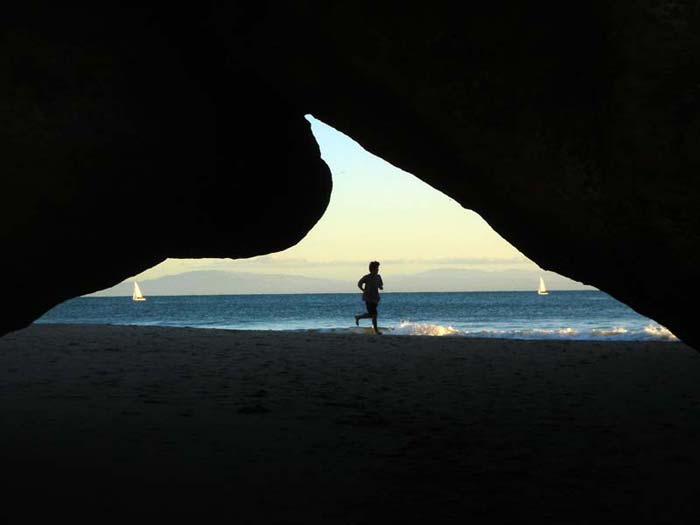
That Certain Day With Magdalen
by John Shirley
“Jesus said, How honored is the lion whom the human eats, so that the lion becomes a human.”
—The Gospel of Thomas, Saying 7

He was called Yeshua. But in later times he was called Jesus.
Some of his followers sent dark looks after Jesus, when he took Miriam alone into the far, stony, scrubby places of the desert, to give her instruction. The day was waning; clouds were heavy in the air. Simon Peter had warned Jesus that it might rain.
“It will not rain again until I am done with Golgotha,” Jesus said, absently, to the puzzlement of everyone who heard. Then he and Miriam of Magdala walked into the desert, the two of them, Jesus with sandals and Miriam barefoot, her feet cut by thistles and sharp stones, but her step never faltering.
“That grateful light in her eye,” Simon Peter complained, in a low voice, “is the candle of vanity.” He spoke as he and John and Thomas hunkered at the base of a sandstone boulder, eating the bread and goat cheese and olives the old farmer had given them that morning. The rabbi’s other followers were about various errands, in preparation for Jesus’s entrance into Jerusalem, in the days to come.
“She should not be among us at all,” Simon Peter continued, between bites. “She is a woman, and incapable of understanding; and some say she has been an adulteress. At the very least, she has been the domicile of unclean spirits.”
“Jesus cast the demons out of her,” John reminded him, tugging at his tenuous beard. “And what he has done he has done for always. Do you doubt that he completes his work? It may be that she is purer than some of his disciples.”
“Do you mean Judas?” asked Thomas, who disliked Judas for his political mania.
“Perhaps,” said John, glancing at Simon Peter—which is who he was really thinking of. Simon Peter could be mercurial, and demanding, at least.
John looked after the diminishing figures of Jesus and Miriam. Their teacher looked stooped with grief, at times, but it was his earthly shape: Jesus was a little bent, for he’d had rickets as a boy; Mary and Joseph’s journey to Egypt had been arduous and left him malnourished.
John watched as the land gave the heat it had collected in the day, and the waves drew shimmering curtains over Jesus and Miriam, until they were gone.
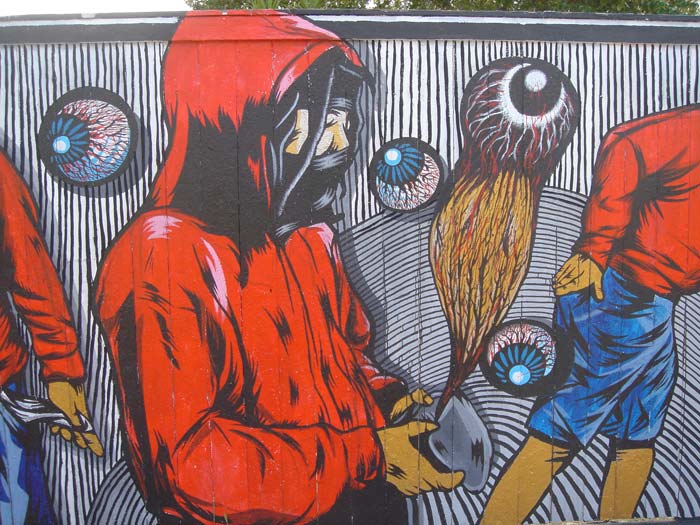
Miriam of Magdala felt strange, alone with Jesus in the desert, she felt his maleness like the steam rising from a hot spring as he walked beside her. She smelled the sweat and flesh of him, his woolen clothing; she caught, too, something like the scent that charges the air just before a lightning storm. But when she glanced at him he was as serene as a papyrus reed on a windless day.
He returned her glance, his waist-long black hair swinging with the motion of his head; his deeply etched black eyes caught her, in a split second, as a hawk catches a mouse; his Roman nose—for his father was in fact the Roman centurion Panthera—and his thick lips, the dark skin of his long face, all seemed to vanish for a moment and she saw only his eyes against the horizon…
“Miriam,” he said, “have you not brought water into this dry place?”
“I have, Teacher,” she said, and gave him the skin of water, with a little wine mixed in it. He drank, and gave her to drink, and then they set it aside on a low shelf of stone projecting from a mound of earth; here they sat, the stone for a bench, and looked out at the shadows lengthening from scrubby, twisted trees; she made out an acacia and a carob tree, off to the right; spiky desert plants alternated with small round stones nearer; in the distance the sudden hills were indigo, becoming purple.
She said, “Teacher, perhaps this question is foolish…”
He laughed; a low, rich sound that she could feel on her skin. His laughter wasn’t often; it was rarer still, the nearer they came to Jerusalem. “A foolish question, Miriam! I rarely hear another kind from anyone. Here are answers—” He waved his hand in a way that somehow meant both the world and the laws that bound it together. She often understood things that way—directly from his mind, without his having to speak them. “When it rains, the stones are wet; when the wind blows, the sand lifts. When a child cries her mother goes to her. These are answers already. But ask it now.”
She wished she hadn’t begun, but she had been commanded to ask. “Teacher, why do Holy Men like the Baptist and Ezekiel—and yourself—why do they go to so remote, so unwelcome a place, to think of God? Is not God also in a garden; are not his works more evident there?”
“Open your eyes—do you not see how the gardener has laid the stones here, just here, and no where else? Who put this bench here for us? Who planted the carob—and just there? Between the tree and the stone is not a jot too much space; not a speck too little. Open your eyes—see with nous.”
She remembered then when he had said, ‘Know what is in front of your face and what is hidden will be disclosed to you.’ She looked around in the way he had taught her—without past and future, without thought, her mind poised between one step and the next, stopped for the space of a look. She saw then that they sat in a garden; the stones were a composition more exquisite than any she’d seen, and she’d once worked in a rich man’s estates.
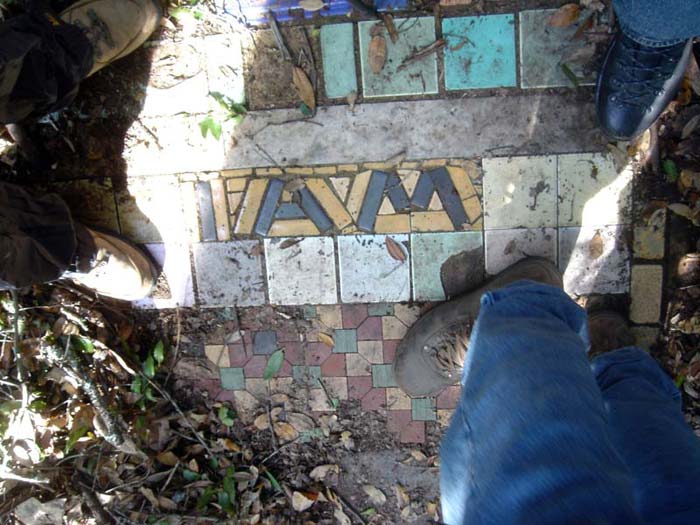
Still—it was, finally, just flora and dirt and grit, she reflected. “What is matter, Teacher?” She asked impulsively, taking up some sand, letting it trickle through her fingers. “Will it last forever?”
Jesus answered, “All that is born, all that is created, all the elements of nature are interwoven and united with each other. All that is composed shall be decomposed. Everything returns to its roots; matter returns to the origins of matter.” And after a moment he added, in a mutter, not particularly to Miriam, something he often said: “Those who have ears, let them hear.”
What he had said about the roots of things made her remember a reply he had given to Simon Peter, who had asked him: “What is the sin of the world?”
The Teacher had answered, “There is no sin. It is you who make sin exist, when you act according to the habits of your corrupted nature; this is where sin lies. This is why the Good has come into your midst. It acts together with the elements of your nature so as to reunite it with its roots…”
The disciples had been shocked to hear Jesus said ‘there is no sin’. This alone might have got him stoned by the stiffnecked, in some places.
“Sin,” Miriam asked now, “comes from being separated from something fundamental to us? Something we have lost?”
Jesus looked at her; she felt his glance go through her like a sharp beam of light through fog and she shuddered.
“You are in the right of it,” he said. “This is why I have brought you here, to tell you some things. You are a better receptacle for some teachings than the others; other than perhaps Thomas. You are a vessel uncorrupted by presumption; you will hold the new wine.”
She looked at him astonished. “I, Teacher?”
He nodded. “When my body has gone through the door through which only the spirit can return, then I will give you another teaching. You will see me in the gnosis between spirit and psyche, and what I say to you then tell only Joseph of Arimathea, and Thomas and James the Just. But if you speak of it to the other disciples, they may savage you—they are still children.”
She was struck dumb—was he speaking of his death?
“As for sin, attachment to matter gives rise to passion against nature. Be in harmony. If you are out of balance take inspiration from manifestations of your true nature. If one is whole, one will be filled with light; if one is divided, with darkness.”
“Then sin is a matter of losing balance, Lord?”
“Does not the Torah speak of the Fall? It is an imbalance—too much attachment and you forget your true nature, and lose the way to the Kingdom.”
“Then…” She hesitated on the edge of a question she had longed to asked, and never dared to. There were rumors that she’d been a whore—it was not so. A man had dishonored her, and she had spoken out against him; and then a sickness had come into her, and disordered her mind, an infestation of venomous personalities that were like parasites on her true self. Jesus had cast these falsities out and set her free. But still the taint of rumor lingered and she was afraid to ask the question.
“Ask it,” Jesus said, watching her.
“Teacher…Lord…is the passion of the body always sin, between a man and a woman? Is the marriage bed for the act of conceiving and nothing more?”
She felt him beside her as he considered his answer…not touching her, but beside like the loom of a cliff. She felt him the way she felt the ringing of the temple bell, when she stood close enough, vibrating in her teeth, her bones. Her breath came quickly; her pulse raced. She could not look at him; she was ashamed to realize she was wet between the legs.
At last he said, “If my Father made the grape taste sweet, it is a sin to deny its sweetness, for its taste was his will; if my Father made us capable of music, it is a sin to forbid song, for its sweetness was his will…”
“And Lord…” Her mouth was so dry. “Is the Son of Man forbidden to take a wife?”
“The son of Man is forbidden nothing but a long life in this world,” said Jesus. “When I was a young man in Egypt, studying with a magus— before I came to recognize myself as I stood in the stream beside the Baptist—I knew women of the temple of Isis, and the mysteries of Isis were revealed to me, and I understood them with joy.”
She wondered what Simon Peter and Judas would say if they heard that remark. “But Lord…Teacher…now that the Son of Man knows that he is the Isaiah spoke of…is it possible…”
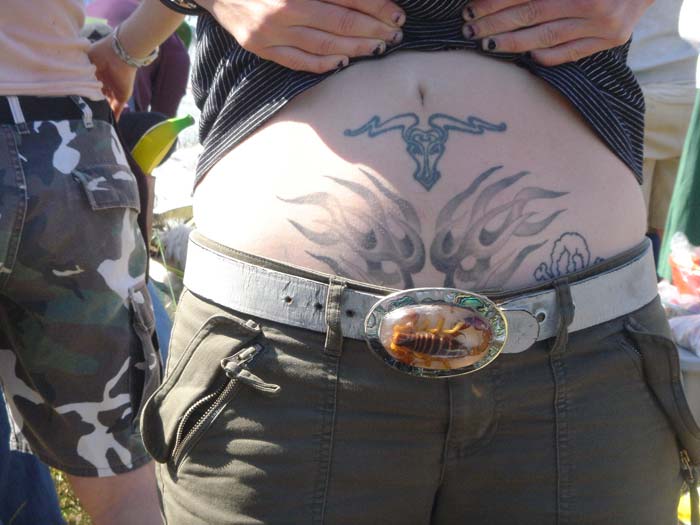
She turned to him and, unable to restrain her shaking hands, she dropped the bodice of her cloak, revealing her brown shoulders; her small and perfect breasts.
Jesus reached out—
And put his hand on her cheek. “Child…I am not insensible to this gift you offer. But what you offer I have already. For I have made the two into one, and the inner like the outer; and the outer like the inner; and the upper like the lower and I have made the male and female into a single one, so that the male will not be male nor the female be female—out of this is abundance. All now is contained within me, and I lack for nothing.”
She felt she was shriveling, at these words, and she drew her clothing hastily to cover herself. “Forgive me, Teacher.”
Jesus shook his head and stroked her hair. “When you strip without being ashamed and you take your clothes and put them under your feet like little children and trample them, then you will see the child of the living one and you will not be afraid, Miriam…”
“You are complete, Teacher. I cannot be complete.”
“Completion will come to you; the completion of the flesh and the completion of psyche. But here—I will give you a nous, a vision to see what may come, and so that you may know me as my beloved…”
She turned to him, thinking that he would kiss her after all—but he merely breathed deeply, then exhaled, gazing into her eyes. His exhalation was something deliberate, and she felt it enter into her: the wind of his lungs carried the lightning of the air into her, passing between her tender breasts and into the marrow of her being; the lightning played about her spine as a tree draws a thunderbolt from the air, and it coruscated between her legs, so that her body thought that she was engaged in lovemaking, and she felt herself engorged and wet with receptivity. But he never touched her, not with his flesh, but only breathed into her, one long breath that carried her soul the way a thistledown is carried on the wind through a canyon, spinning between roaring, echoing stone and clay, redolent of the deep and secret caverns of the earth…
Something resounded in Miriam, then so that her whole body rippled and she groaned, she felt waves of sweet warmth pulse out from groin and the tips of her breasts, little points of fire dancing between her lips…
And then it was over, the way an echo ends, repeating more and more softly…until it is gone.
Jesus put his arm around her as she wept. In time, the darkness of evening gathered around them, and he led her back to their camp. It was a long ways, and they had only walked this way once, but his steps never faltered.
Miriam was well aware of the smoldering hostility from Simon Peter when she and Jesus walked into the circle of firelight. They ate a little, and spoke less, and then Jesus said, “Simon Peter, say what it is in your heart to say.”
Simon Peter said, “Miriam of Magdala should leave us. For females are not worthy of Life.”
Jesus said, “Look, I shall guide her to make her male, so that she too may become a living spirit resembling you males. For every female who makes herself male will enter heaven’s kingdom.”
Miriam knew that Jesus spoke in something approaching parable; that by male and female he meant dividedness to this way or that, without balance. She did not speak of it. But she knew: because he had given her a foretaste of completeness.
He had given her something else too. Though he had not touched her, and though she lay with no man, nine months later, after Jesus had ascended, Miriam bore a child.
But the child was not a being of the flesh; it was her own soul, made new, in the realm that is beyond Death.
About the Author
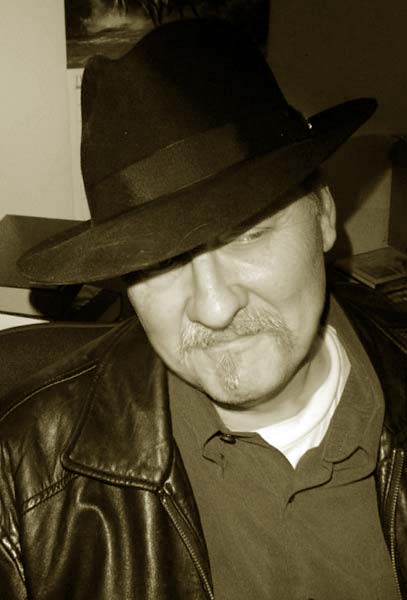
John Shirley won the Bram Stoker award for his story collection Black Butterflies which was also chosen as one of the best books of the year by Publisher's Weekly. He was one of the original cyberpunk writers and is a songwriter (for the Blue Oyster Cult as well as for his own bands). He is the author of the novels City Come-A Walkin', Demons and Crawlers, amongst many others, and his new novel is The Other End. His new story collection is Living Shadows. He is also a screenwriter ("The Crow"), television writer, documentarian ("The Spiritual Journey"), and has done work designing videogames. He spends a lot of time at home in the East Bay, San Francisco area, trying to amuse a small Yorkshire Terrier which was supposed to be a gift for his wife Micky. There's way too much information on him--and MP3s of his music--at his website.